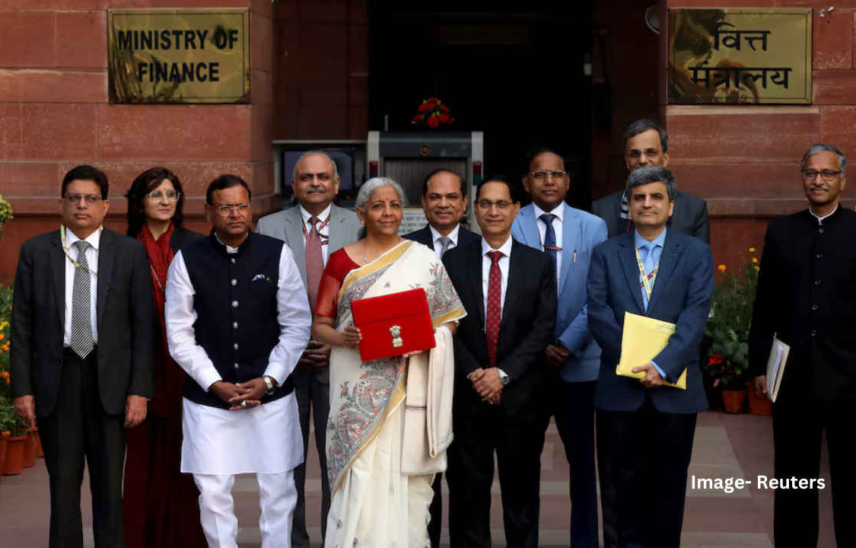
- Home
- Managed Services
- Cyber Security
- Blog
- About Us

We 365 Admin Support, just simplify your IT problems
Call for a free support. +91 96666 59505Platform Partnership
- Who We Help
- Shop
- Contact
- News






HIGHLIGHTS
Table of Contents
ToggleBudget 2025: On Saturday, Finance Minister Nirmala Sitharaman unveiled Budget 2025, introducing measures designed to invigorate the Make in India initiative. As part of these efforts, she announced a reduction in import taxes on critical components necessary for manufacturing smartphone batteries, Smart LED TVs, and a variety of electronic goods. This strategic move is anticipated to lower manufacturing costs, which should translate into reduced retail prices for consumers.
As detailed by Sitharaman, the Basic Customs Duty (BCD) on several essential materials has been reduced. This includes open cells, cobalt, lithium-ion battery scrap, lead, zinc, and twelve additional minerals vital for the production of semiconductors, batteries, and renewable energy technologies.
The new budget proposal stipulates an increase in the BCD on flat-panel displays from 10% to 20%, while simultaneously cutting the BCD on open cells and associated components to 5%. This initiative is aimed at promoting domestic manufacturing of lithium-ion batteries, which are crucial for both electric vehicles and smartphones.
Moreover, the Finance Ministry has exempted 28 additional capital products essential for the production of mobile phone batteries from import duties, a move intended to further stimulate local manufacturing. The decision to reduce customs duties is expected to have a significant impact on final consumer pricing, particularly within the electronics and mobile phone industries.
Consequently, consumers can anticipate lower price tags for smartphones and Smart LED TVs, thereby creating a more vibrant local manufacturing ecosystem.
“The Union Budget 2025 indicates a calculated strategy to establish India as a premier hub for mobile device manufacturing. The proposed reductions in tariffs for critical assembly components—like PCBAs, camera modules, USB cables, and display modules—are commendable initiatives that will enhance cost efficiency and promote localization, all while reinforcing the Make in India effort,” remarked Arijeet Talapatra, CEO of itel and Tecno.
“Additionally, the rise in the income tax exemption limit to ₹12 lakh is expected to significantly bolster disposable incomes. This boost will financially empower taxpayers, consequently leading to an uptick in consumer spending on electronics. As a result, the purchasing power of consumers is set to increase, driving up demand for smartphones and similar digital gadgets, which will catalyze the continuing growth of India’s electronics sector,” Talapatra added.
A. Gururaj, Managing Director of Optiemus Electronics, expressed, “The Union Budget has rightly focused on enhancing the purchasing potential of a vast demographic through tax reliefs, alongside support for the agricultural sector. We believe that increased liquidity will empower farmers to adopt new technologies such as drones, subsequently accelerating market growth. Regarding electronics manufacturing, the relaxation of Basic Customs Duties for select components is a proactive step that continues previous policy initiatives and supports indigenous production. We welcome the Union Budget wholeheartedly, recognizing its positive impact on the Optiemus Group and the broader economy.”
Hyder Ali Khan, CEO & Director of Godawari Electric Motors, stated, “The National Manufacturing Mission is a pivotal stride towards reinforcing India’s clean-tech ecosystem, fostering self-sufficiency in the production of EV batteries and solar panels. The government’s move to wholly exempt Basic Customs Duty on vital minerals including cobalt and lithium-ion battery waste is integral for securing critical resources for domestic manufacturing and job creation.”
Khan further emphasized, “The exemption from customs duties on 35 capital goods related to EV battery manufacturing is a highly favorable initiative, considering batteries constitute nearly 40% of an EV’s overall cost. Any reduction in expenses in this domain will significantly enhance the affordability of EVs for consumers. Furthermore, the improved tax relief threshold of up to ₹12 lakh will widen consumers’ purchasing power, expediting the transition toward green mobility. These forward-thinking policies set the stage for a cleaner and more sustainable future for all.”